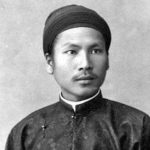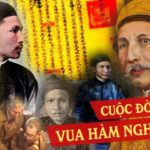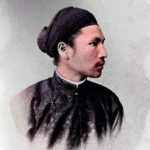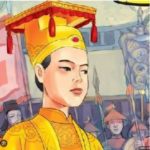Vietnam’s history records, a man although not a king but his three sons were successively crowned kings with different destinies. Who is he?
The man who is not a king but has the most sons who become kings
Nguyen Phuc Hong Cai (1845 – 1876), with the title of Kien Thai Vuong, was the prince of Emperor Thieu Tri of the Nguyen Dynasty (the younger brother of Emperor Tu Duc). He is known as the father of 3 successive kings of the Nguyen dynasty, which are Kien Phuc (Nguyen Phuc Ung Dang), Ham Nghi (Nguyen Phuc Ung Lich), and Dong Khanh (Nguyen Phuc Ung Ky). Because Tu Duc did not have any children, he adopted these 3 nephews as his foster sons. The destinies of these three sons are very different. There is a saying in Hue: “One family gives birth to three kings, One king alive, one king dead, one king running away”.
+ King Kien Phuc
King Kien Phuc (1869 – 1884), real name Nguyen Phuc Ung Dang, was the 7th emperor of the Nguyen Dynasty. In 1883, at the age of 14, Ung Dang was enthroned, but 8 months later he suddenly passed away. There are many different theories about his death, such as the king died of illness or was poisoned. He became the most unfortunate sovereign of the Nguyen dynasty, he passed away at the age of 15, without having a formal coronation and without any children.
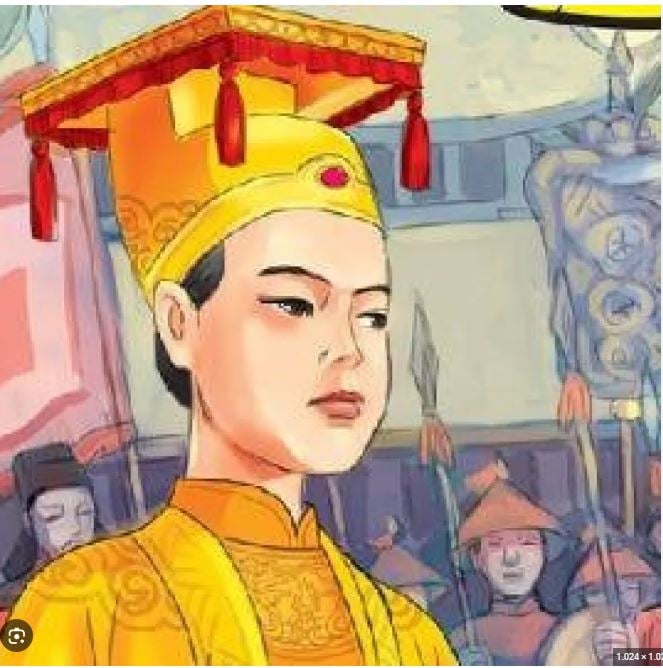
Nguyen Phuc Hong Cai (1845 – 1876), with the title of Kien Thai Vuong, was the prince of Emperor Thieu Tri of the Nguyen Dynasty (the younger brother of Emperor Tu Duc) (illustrated photo) (source: internet)
+ King Ham Nghi
King Ham Nghi ascended the throne in August 1884, but less than a year later the capital was captured. Ton That Thuyet took King Ham Nghi and the retinue out of the imperial capital Hue and fled to Tan So mountain area (Quang Tri). Here, the king issued the Can Vuong Proclamation, calling on the people to rise up and support the king to save the country.
During his time in Quang Tri, to avoid intense pursuit by the French army, Ton That Thuyet took King Ham Nghi and the retinue away from Tan So, crossing Laos and arrived in Au Son mountain area (Huong Khe, Ha Tinh). However, in September 1888, he was betrayed by Nguyen Dinh Tinh and Truong Quang Ngoc and was handed over to the French army.
+ King Dong Khanh
When Nguyen Phuc Ung Ky ascended the throne as the emperor of Dai Nam, unlike the normal practice, the new king would normally create his own reign title. However, Ung Ky continued to use the reign title Ham Nghi of the former king, who was also his brother, in official documents and decrees.
In response to this unusual situation, the court ministers approached Queen Regnant Tu Du for guidance on proposing a reign title for the new king. The Dong Khanh Chronicle wrote: “Before that, the court officials presented their case, following the guidance of Queen Regnant Tu Du, saying that, after more than a month on the throne, Your Majesty still retains the Ham Nghi reign title, causing suspicion among the people. Therefore, it is proposed to immediately adopt the Dong Khanh reign title to stabilize the people’s minds without waiting for the next year… The king agreed and copied the guidance and the court’s resolution to announce it to the public.”
Which Vietnamese king has the most children?
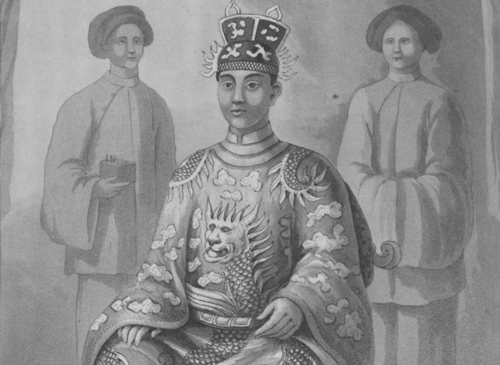
During his life, King Minh Mang had up to 142 children, including 78 princes and 64 princesses.
Minh Mang is one of the most capable kings in the history of feudal Vietnam. Under his reign, the Nguyen Dynasty built a strong nation, earning respect from neighboring countries.
Not only famous for being a strict and capable king, Minh Mang also has the most children among other emperors of feudal Vietnam. During his life, King Minh Mang had up to 142 children, including 78 princes and 64 princesses. King Minh Mang of the Nguyen Dynasty had many wives, he was famous for his recipe that could impregnate 5 women in one night. King Minh Mang enjoyed the most pleasures in the royal bed. The number of concubines who could bear children was 43, but according to many documents in the palace, there were from 500 to 600 people. His wives were mostly from the South. King Minh Mang passed away on December 28, 1841, at the age of 50, after 21 years on the throne. His tomb is still preserved almost intact in Huong Tra district, Thua Thien Hue province.
























